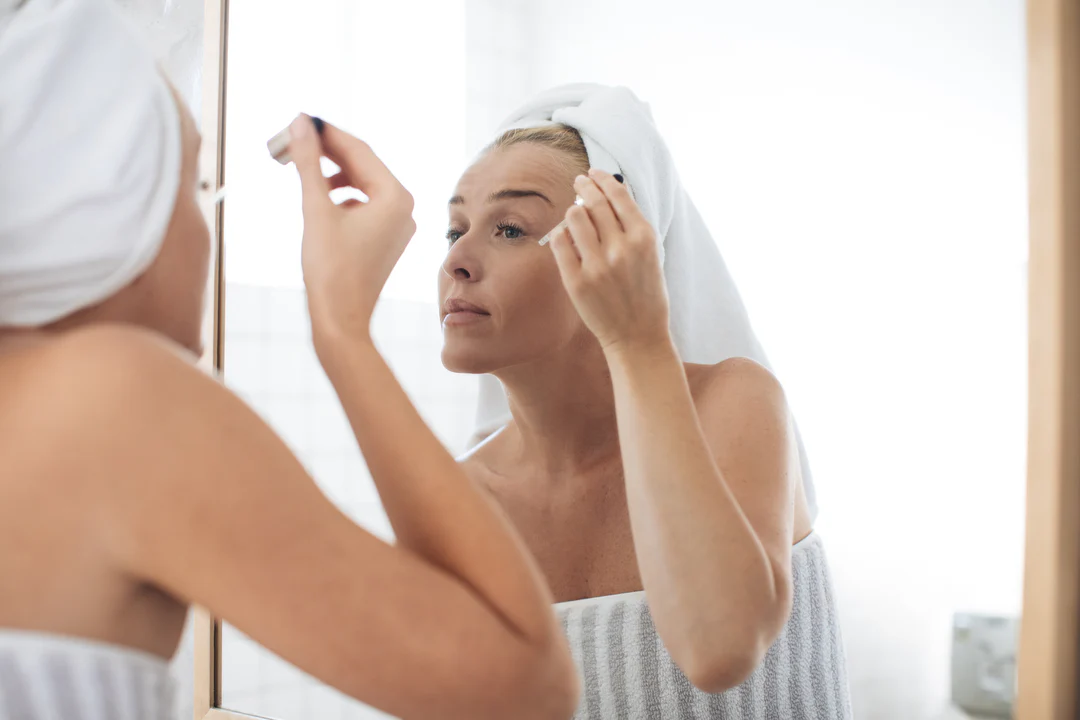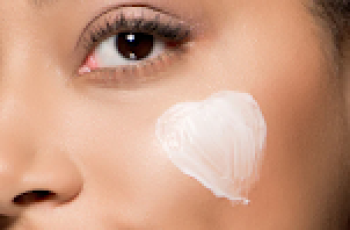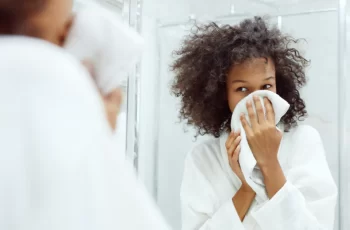Is aluminum in deodorants and antiperspirants bad for your body?
This has become one of the biggest issues of the past decade as concerns about aluminum in antiperspirants have spread around the world and alternative solutions have become more common. We recently launched our own natural deodorant with activated charcoal, which is completely free of the harmful ingredients you might find in your regular deodorant.
So where does this fear come from? Is aluminum safe? Well, the fear came when the media started discussing some tests on aluminum intake and whether aluminum can cause breast cancer (one of the diseases on the list). So let’s explore this topic in more detail.
The link between antiperspirants and breast cancer
The problem is that shaving your armpits can cause small cuts in your skin. When you spray or use an antiperspirant deodorant, aluminum enters your body and is absorbed into your bloodstream. The thing is, it doesn’t take a break in your skin to absorb aluminum. However, the absorption rate is six times higher after a cut.
Scientists’ initial observations showed how they block the body from excreting toxins, and when the toxins are trapped, they travel to the lymph nodes. They may have estrogenic effects, and estrogen is the main female sex hormone that promotes the growth of breast cancer cells.
Breast cancer is one of the leading causes in the UK. In 2016, there were 11,563 deaths there. However, since the 1970s, numbers have fallen by 38% as knowledge and surgical practice have increased significantly. In the UK, more than 55,000 women are diagnosed with the disease each year, and more than half of breast cancers actually start in the upper outer quadrant of the breast, just next to the armpit.
As this is the main area for cancer development, absorbing a chemical that is thought to be a factor is an understandable fear signal.
Scientists have studied this area and this is their prediction, but there is no 100% proof of this yet and testing is still ongoing.
Why is aluminum used in antiperspirants?
The difference between deodorants and antiperspirants is important. Antiperspirants are designed to block and unclog sweat glands while breaking down sweat. The problem is finding a natural alternative that is just as successful as the traditional method of blocking sweat glands.
What else should I be aware of?
Another ingredient we recommend staying away from is parabens, which are not found in our natural deodorants, obviously. They are preservatives that are commonly found in most of these products, but are more likely to be found in breast tumors. This doesn’t mean there is a direct link, as they say correlation does not mean causation (nerd hat on), but it is another area that scientists are looking into.
DQH Can I use salicylic acid first and then vitamin C?
It’s easy to create a skincare routine, but knowing how to use it is another thing entirely. In most cases, if you’re not getting the desired skin results, it could be due to the layering of conflicting ingredients. So, is it possible that salicylic acid and vitamin C are such ingredients? Or are these active ingredients the duo that’s been missing from your skincare routine? If you want answers, stick around because today we are going to explain the benefits of salicylic acid and vitamin C and how they can be used in your daily life.
What are the benefits of salicylic acid for skin?
Salicylic acid is one of the most commonly used beta hydroxy acids and is favored by many people with oily, acne-prone skin. This acid is derived from willow bark, and unlike its water-soluble relatives (called alpha-hydroxy acids), salicylic acid is oil-soluble, which means it can penetrate deeper into the lower layers of the skin. Once it reaches the lower layers, it can help unclog pores of excess sebum, dirt, bacteria, debris, and impurities. This results in clearer skin tones and greater definition.
Not only does salicylic acid benefit the underlying layers, but the outer surface of the skin benefits as well. When applied to the skin, salicylic acid removes the buildup of dead skin cells. This is accomplished by breaking the bonds that hold dead cells to the surface. Over time, this can cause the complexion to look dull and prone to acne, blackheads, and other blemishes.
If you’d like to learn more about salicylic acid and how it can improve your skin, check out this dedicated blog post from a beauty insider.
What are the benefits of vitamin C for skin?
Vitamin C is considered one of the most powerful antioxidants, which means it is very effective at fighting free radicals and preventing them from causing further skin damage. Examples of free radicals include pollution, central heating, UV rays and harsh climate. They attack proteins, fats and cell membranes as soon as they come into contact with the skin, causing signs of premature aging such as fine lines and wrinkles as well as hyperpigmentation, flaky patches of skin and loss of elasticity.
Many people usually prefer to use vitamin C in their morning routine as this ingredient gives the complexion a radiant glow. You’ll also find that vitamin C can target areas of hyperpigmentation, plumping the skin and reducing the appearance of fine lines and wrinkles.
The thing about vitamin C is that there are a lot of outdated studies going back to the 1950s that describe vitamin C as an unstable skin component. Thanks to improvements in modern technology, this is no longer the case as all products now contain a stable form of vitamin C.
Visit The Beauty Insider to learn more about vitamin C. So please check out our blog post.
Can I use salicylic acid first and then vitamin C?
Yes, you absolutely can. In fact, it’s thought that using salicylic acid before using vitamin C ensures it penetrates faster and works faster.
This is an efficient way to utilize two power sources, and the reason has to do with pH. For example, the skin’s natural pH is about 4.7, making it slightly acidic. Salicylic acid and vitamin C are also both acidic, and you’ll find that vitamin C is absorbed quickly into the skin. Therefore, using salicylic acid beforehand can increase the acidity of the skin and allow vitamin C to penetrate into the skin faster.
While this is considered an effective way to combine two powerful ingredients, you need to be aware of your skin type and how it reacts to certain active ingredients. Even people with perfect, normal skin can experience skin sensitivity and irritation. Therefore, always consult a doctor or dermatologist before using any new products on your skin.
It’s also important to follow skin application rules. In this case, you need to use the product correctly to ensure you get the best results for your skin. If you’re not sure what I mean, the basic rule for skin is to start with the thinnest consistency and work your way up to the thickest consistency. This prevents a barrier from forming on the surface, preventing other active ingredients from penetrating the skin.
Can I use salicylic acid at night and vitamin C in the morning?
Yes, absolutely, this is considered the most effective way to get returns without any adverse side effects. This is because there is enough time between applications to ensure that the skin’s pH levels return to balance.
You’ll also find that Vitamin C is rich in antioxidants and is perfect for use in the morning to ensure your skin is protected and looking its healthiest. Due to the small size of salicylic acid molecules, it is an acid that is able to reach the deepest parts of the skin. While this is effective at keeping skin clear, it also increases the risk of irritation and photosensitivity. Therefore, many people prefer to use powerful BHAs in their evening routine without exposure to UV rays, pollution, or harsh weather.
Warning: If you avoid using sunscreen every day, none of these ingredients will do what your skin needs. The combination of chemical peels and powerful ingredients increases the risk of further damage to the skin’s surface. Use SPF 50 every day to keep your skin protected and your lipid barrier healthy, even on cloudy days, keeping your skin in top condition.



